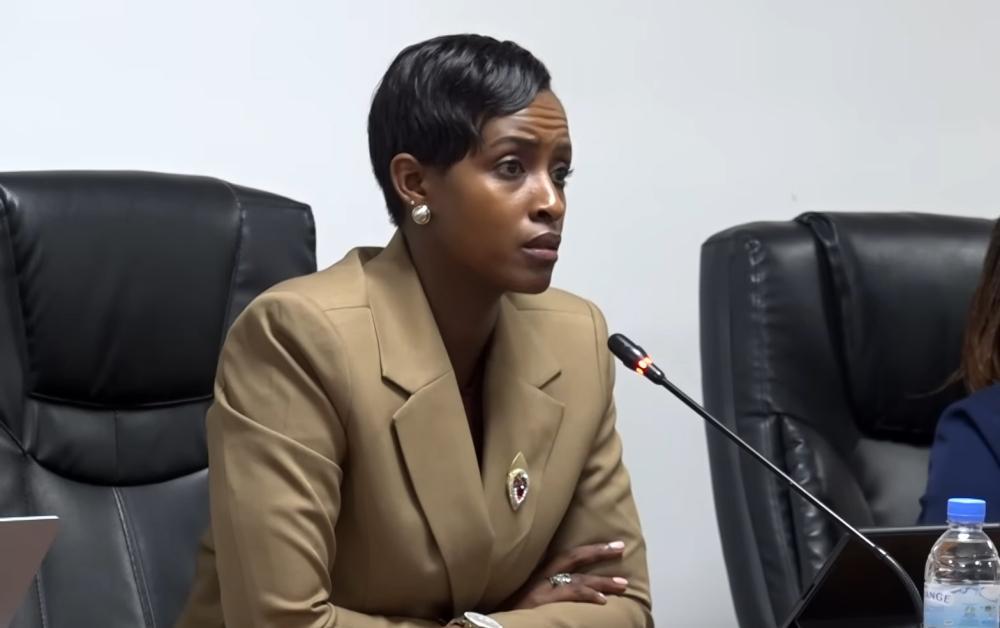Africa-Press – Rwanda. The Ministry of Sports’ idea of funding only performing federations is notable, and we wait to see how it’s going to work differently this time round.
The announcement made on Wednesday, November 5 marks a change in Rwanda’s approach to sports development and funding.
By adopting a results-based model to guide future financial support for national sports federations, the government has sent a clear message: accountability, performance, and long-term impact must go hand in hand.
According to press reports, the government has picked 11 national federations as priority for funding. They include; football, volleyball, basketball, cycling, athletics, handball, sitting volleyball, karate, kung fu, swimming, and tennis.
Minister Nelly Mukazayire, appearing before the Public Accounts Committee on November 5, outlined a pragmatic and visionary strategy, one that aims to ensure that public resources are invested where they can produce tangible results.
These 11 federations, according to the ministry, have demonstrated both strong performance and the potential to deliver on the international stage, signalling an era of merit-based funding.
Indeed, this performance-driven approach is a welcome and necessary reform. For too long, resources have been spread thin across federations, some of which have consistently failed to deliver meaningful results despite government support, as the minister rightly put it.
Mukazayire’s remarks that “no national team leaves the country without assessing their readiness and likelihood to produce results”, underscore a renewed commitment to efficiency and value for money. This is the way to go.
To put it mildly, no more government funding for under/non-performance. It’s a bold shift from funding for participation to funding for performance. Simply partaking for the sake of it is not enough anymore.
However, amid all the optimism and forward-looking reforms, one glaring omission stands out: the Rwanda Cricket Association (RCA). If there is one federation that has consistently delivered on performance, sustainability, and accountability, it is cricket.
The sport’s rise from obscurity to becoming one of the most organised and successful federations in the country, is nothing short of inspirational.
Cricket and its growth in Rwanda is an amazing story. One wonders how such a story has been missed by the Ministry of Sports. Or is it just deliberate? Just asking for the cricket fraternity!
With minimal government support, the RCA has built infrastructure, established strong youth and school development programs, and maintained competitive men’s and women’s leagues across divisions.
Its administration is widely regarded as among the most professional in Rwandan sport. The federation’s self-sustainability, coupled with tangible results both on and off the field, makes its exclusion from the government’s priority funding list puzzling, if not unjust.
If the government’s intent is truly to reward performance, then cricket should be among the leading beneficiaries.
The RCA has demonstrated the very principles the Ministry of Sports is now advocating for: prudent financial management, long-term planning, and measurable success.
To overlook such a federation risks discouraging other sports bodies that are striving to achieve similar excellence.
While football inevitably commands the largest share of the sports budget, it has yet to provide a meaningful return on investment.
Rwanda’s failure to build on its 2011 U17 FIFA World Cup appearance, and its recent absence from regional qualifiers, is a sobering reminder that money alone does not yield results, but strategic development and accountability do.
Therefore, as Rwanda embraces a results-based funding approach and revitalises school sports to cultivate the next generation of athletes, it must also ensure fairness and consistency in recognising success stories like cricket.
In the same breadth, and equally commendable is the government’s renewed focus on youth development through schools.
The relaunch of the 2025/26 Inter-School Sports Competitions, in partnership with the Ministry of Education, is perhaps the most significant step yet toward rebuilding Rwanda’s sporting foundation.
Schools have historically been the cradle of talent, producing some of the country’s finest athletes.
However, in recent years, that pipeline has weakened due to underfunded programs, inadequate facilities, and the absence of physical education teachers.
By reinvesting in school sports, the government is addressing the issue at its roots. The inclusion of 17 disciplines, from football and volleyball to swimming, judo, karate, and even less known seat ball, ensures that every child can find a platform to express their talent.
As Minister Mukazayire rightly notes, “This marks a new chapter where we’re committed to nurturing young talents right from the lower levels.”
The Ministry of Education’s plan to recruit more physical education teachers is equally important, because talent does not emerge by chance, but it must be discovered, trained, and nurtured systematically.
Competitive inter-school tournaments will not only revive school pride but will also create a structured pathway from classroom to national team.
This grassroots model mirrors the success stories of sporting powerhouses where structured youth programs feed into elite performance. It’s a tested and trusted approach.
Therefore, rewarding genuine achievement while nurturing future talent is the formula that will propel Rwandan sports to regional, and continental relevance. Words need to be dressed in action.
Having said that, the government’s new direction deserves praise, but true transformation will only come when all performing federations, including cricket, are given the recognition and support they rightfully deserve.
For More News And Analysis About Rwanda Follow Africa-Press






